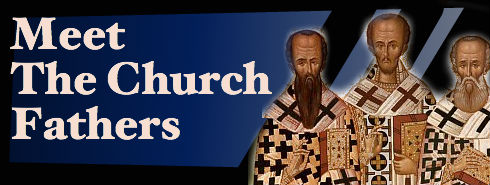by Nathan Busenitz (from a blogpost California.

After the apostles died, was the gospel hopelessly lost until the Reformation?
That certainly seems to be a common assumption in some Protestant circles today. Thankfully, it is a false assumption.
I’m not entirely sure where that misconception started. But one thing I do know: it did not come from the Protestant Reformers.
The Reformers themselves (including Luther, Zwingli, Calvin, and others) were convinced that their position was not only biblical, but also historical. In other words, they contended that both the apostles and the church fathers would have agreed with them on the heart of the gospel.
For example, the second-generation Lutheran reformer, Martin Chemnitz (1522-1586), wrote a treatise on justification in which he defended the Protestant position by extensively using the church fathers. And John Calvin (1509-1564), in his Institutes, similarly claimed that he could easily debunk his Roman Catholic opponents using nothing but patristic sources. Here’s what he wrote:
If the contest were to be determined by patristic authority, the tide of victory — to put it very modestly —would turn to our side. Now, these fathers have written many wise and excellent things. . . . [Yet] the good things that these fathers have written they [the Roman Catholics] either do not notice, or misrepresent or pervert. . . . But we do not despise them [the church fathers]; in fact, if it were to our present purpose, I could with no trouble at all prove that the greater part of what we are saying today meets their approval.
Source: John Calvin, “Prefatory Address to King Francis I of France,” The Institutes of the Christian Religion, Section 4.
How could the Reformers be so confident that their understanding of the gospel was consistent with the teachings of the ancient church? Or perhaps more to the point: What did the early church fathers have to say about the gospel of grace?
Here is an admittedly brief collection of 30 patristic quotes, centering on the reality that justification is by grace alone through faith alone. Many more could be provided. But I think you’ll be encouraged by this survey look at the gospel according to the church fathers.
(Even if you don’t read every quote, just take a moment to consider the fact that, long before Luther, the leaders of the ancient church were clearly proclaiming the gospel of grace through faith in Christ.)
1. Clement of Rome (30-100): “And we, too, being called by His will in Christ Jesus, are not justified by ourselves, nor by our own wisdom, or understanding, or godliness, or works which we have wrought in holiness of heart; but by that faith through which, from the beginning, Almighty God has justified all men; to whom be glory forever and ever. Amen.”
Source: Clement, First Epistle to the Corinthians, 32.4.
Continue reading

 (1) Back in 2005, Dr. Wayne Grudem taught an outstanding message at an ETS Conference on the theme “Are Only Some Words of Scripture Breathed Out By God?” I am pleased to see that it is now in a written format, both in a condensed form I was directed to a very helpful and insightful article by Carolyn McCulley called
(1) Back in 2005, Dr. Wayne Grudem taught an outstanding message at an ETS Conference on the theme “Are Only Some Words of Scripture Breathed Out By God?” I am pleased to see that it is now in a written format, both in a condensed form I was directed to a very helpful and insightful article by Carolyn McCulley called  (4) I am thinking of cancelling
(4) I am thinking of cancelling  (7) Once again, Ligonier has some excellent deals today in this week’s $5 Friday sale. especially for audio and video downloads. The children’s book and the “Believing God” book are also excellent. The online sale started at 8 a.m. EST and goes on for 24 hours or until items are sold out.
(7) Once again, Ligonier has some excellent deals today in this week’s $5 Friday sale. especially for audio and video downloads. The children’s book and the “Believing God” book are also excellent. The online sale started at 8 a.m. EST and goes on for 24 hours or until items are sold out.